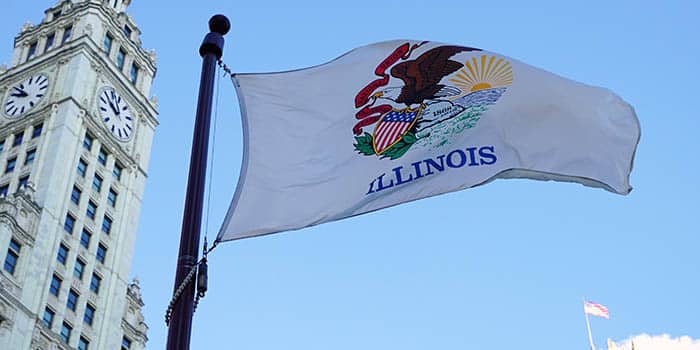- Casino
- By State
- Alabama
- Alaska
- Arizona
- Arkansas
- California
- Colorado
- Connecticut
- Delaware
- Georgia
- Florida
- Hawaii
- Idaho
- Illinois
- Indiana
- Iowa
- Kansas
- Kentucky
- Louisiana
- Maine
- Massachusetts
- Maryland
- Michigan
- Minnesota
- Mississippi
- Missouri
- Montana
- Nebraska
- Nevada
- New Hampshire
- New Jersey
- New Mexico
- New York
- North Carolina
- North Dakota
- Ohio
- Oklahoma
- Oregon
- Pennsylvania
- Rhode Island
- South Carolina
- South Dakota
- Tennessee
- Texas
- Utah
- Vermont
- Virginia
- Washington
- West Virginia
- Wisconsin
- Wyoming
- By State
- Slots
- Poker
- Sports
- Esports
PILOT Under Fire Again, Liberty and Prosperity Take Shots at Its Constitutionality

The amendment to the payments-in-lieu-of-taxes law meant a lot of lost tax revenue and the money had to come from somewhere and that was one of the biggest issues with it so far. Now, however, it turns out there might be some infringements to the State’s Constitution as well.
Another Issue Surrounding PILOT Amendment
The Press of Atlantic City exclusively reported on a lawsuit being filed by Liberty and Prosperity – a local nonprofit – striving for cancelling the notoriously amended payments-in-lieu-of-taxes (PILOT) law that changed how casinos’ taxes were calculated. This is happening simultaneously as the State is already fighting Atlantic County over the same issue, where Atlantic City casinos claim PILOT might be life-or-death for them.
As per Michelle Brunetti Post’s words – the author of the Press of Atlantic City’s report – it’s Judge Michael Blee who is expected to make the call soon on whether the amendment to the original 2016 PILOT violates a tax uniformity clause in the State’s Constitution.
The amendment to PILOT is a very polarizing topic, which is further made clear in court, where on the one side we have Liberty and Prosperity arguing the amendment proposed taxing casinos differently which can be construed as a violation to the uniformity clause in the State’s Constitution. On the other, we have the State, arguing that just by nature of how casino gaming was first legalized in Atlantic City, there’s already a case to be made about casinos being treated differently in constitutional terms and that nulls this particular argument.
The crux of the amendment problem is that originally the PILOT program was very focused on protecting taxpayers and now casinos are on the brink of being kept afloat by proposed changes to the original deal.
Complex Story of Property Tax Break Law
Originally passed in 2016, the first PILOT was deemed in need of an update and towards the end of last year it was passed into law, but some of the proposed amendments didn’t sit quite well with all parties involved. While casinos would argue they need the tax reliefs in order to stay in business, there was an argument to be made that this lost tax revenue would ultimately have to come mostly from taxpayers, and that’s where court filings and lawsuits started flooding the issue.
Numerous takes on the PILOT amendment muddied the waters, with each side trying its best to steer the boat in the direction that best suits them. The amendment saw iGaming and sports betting excluded from the PILOT calculations, however, this meant millions of dollars in lost tax revenue for the County, which would have to be compensated by the State or the taxpayers – hence, the legal battle started brewing between State and County.
So, Atlantic County was expecting a decision by the New Jersey Superior Court Judge Joseph Marczyk back in February this year. However, this was later pushed back to the end of April. After a second judge ruled against the proposed changes in May, citing that the amendment violates a consent order from 2018, it was getting more and more difficult to gauge what the legal limits for a property tax break could and should be.
The issue might be coming to a close, finally, as this gets decided, so stay tuned for more updates on the topic.
Related Topics:
Kyamil is a big tech fan, who loves hummus on everything and has enjoyed writing from a young age. From essays, through personal art, to news pieces and more serious tech analysis. In recent years he’s found fintech and gambling collide with all his interests, so he truly shares our core passion for the entire gambling scene and furthering the education of the mass citizen on these topics.
Must Read
Casino
June 24, 2025
NZ Opens Door to Regulated Online Casino Market
More Articles







Casino
June 30, 2025
Vietnam Greenlights $2B Van Don Casino Resort

Casino
June 30, 2025
BC.Game Player Turns $20 Bet into $100K+ Payout

Casino
June 30, 2025
Hard Rock Executive Under Fire Due to Alleged Misdeeds

Casino
June 30, 2025
Wynn COO Vows Change Amid Ongoing Regulatory Pressure

Casino
June 30, 2025
DIMOCO Enters Germany iGaming Market with Neo.Bet

Casino
June 30, 2025
Man Admits to Laundering Cocaine Money Through Casinos











